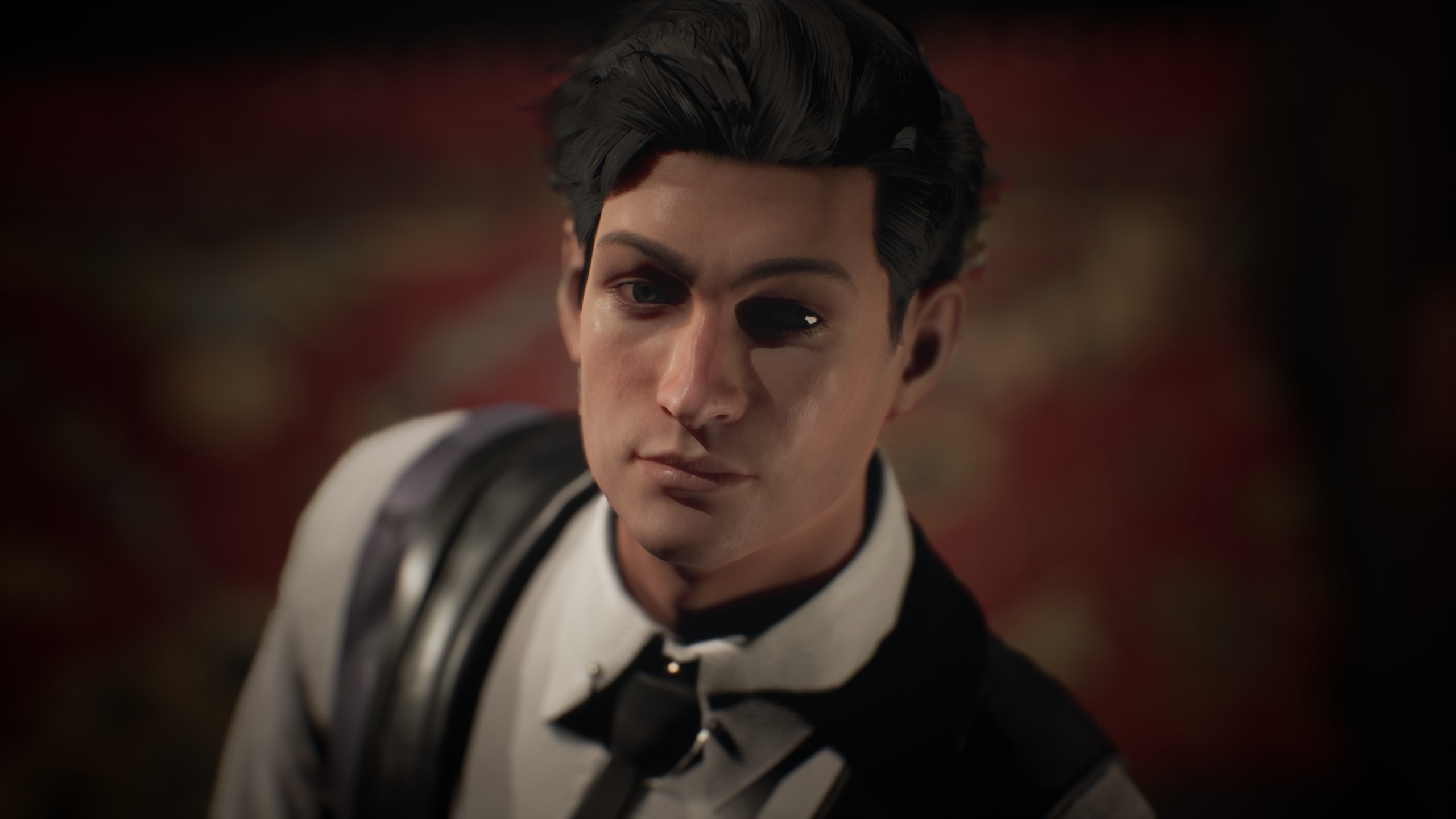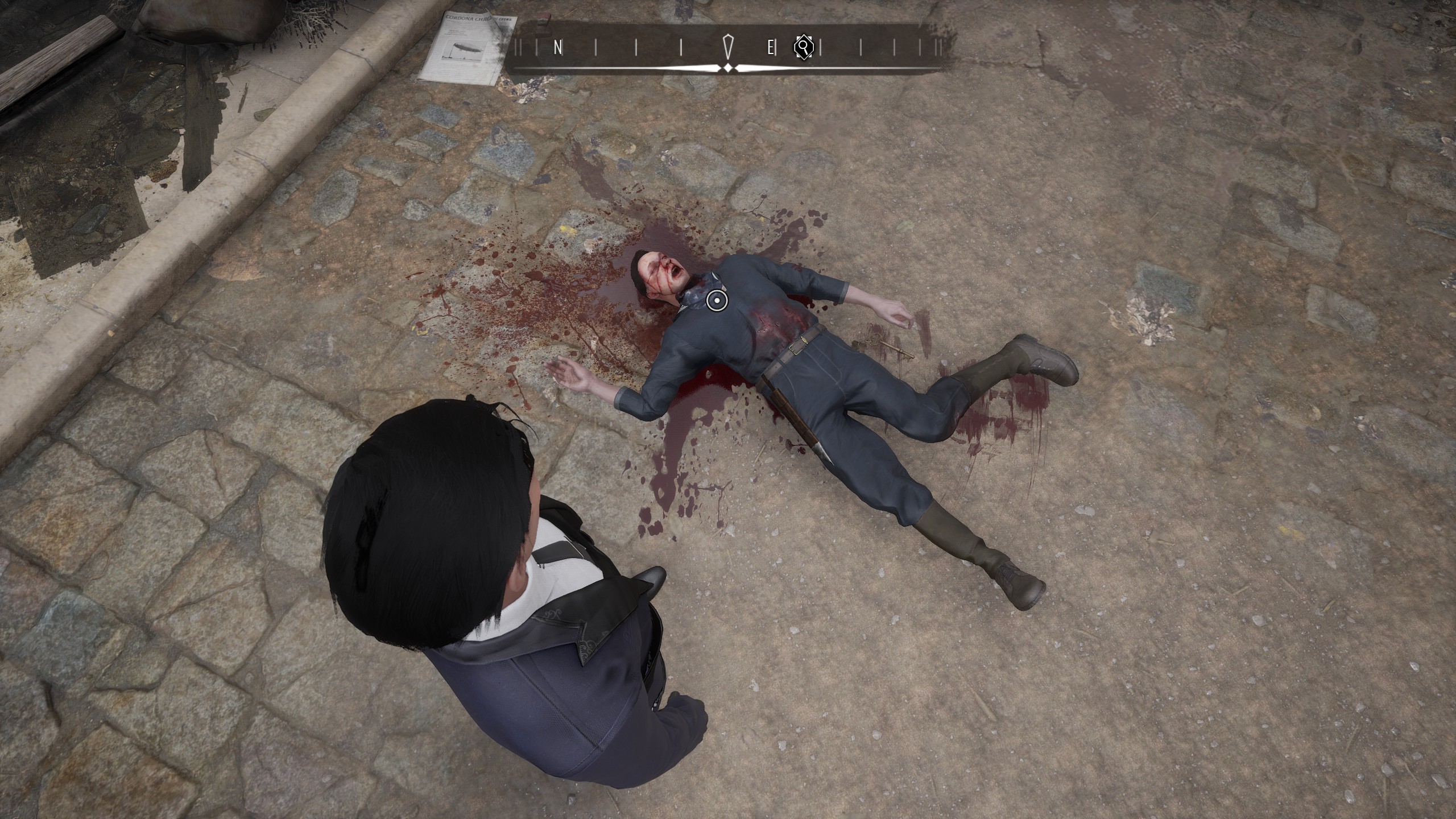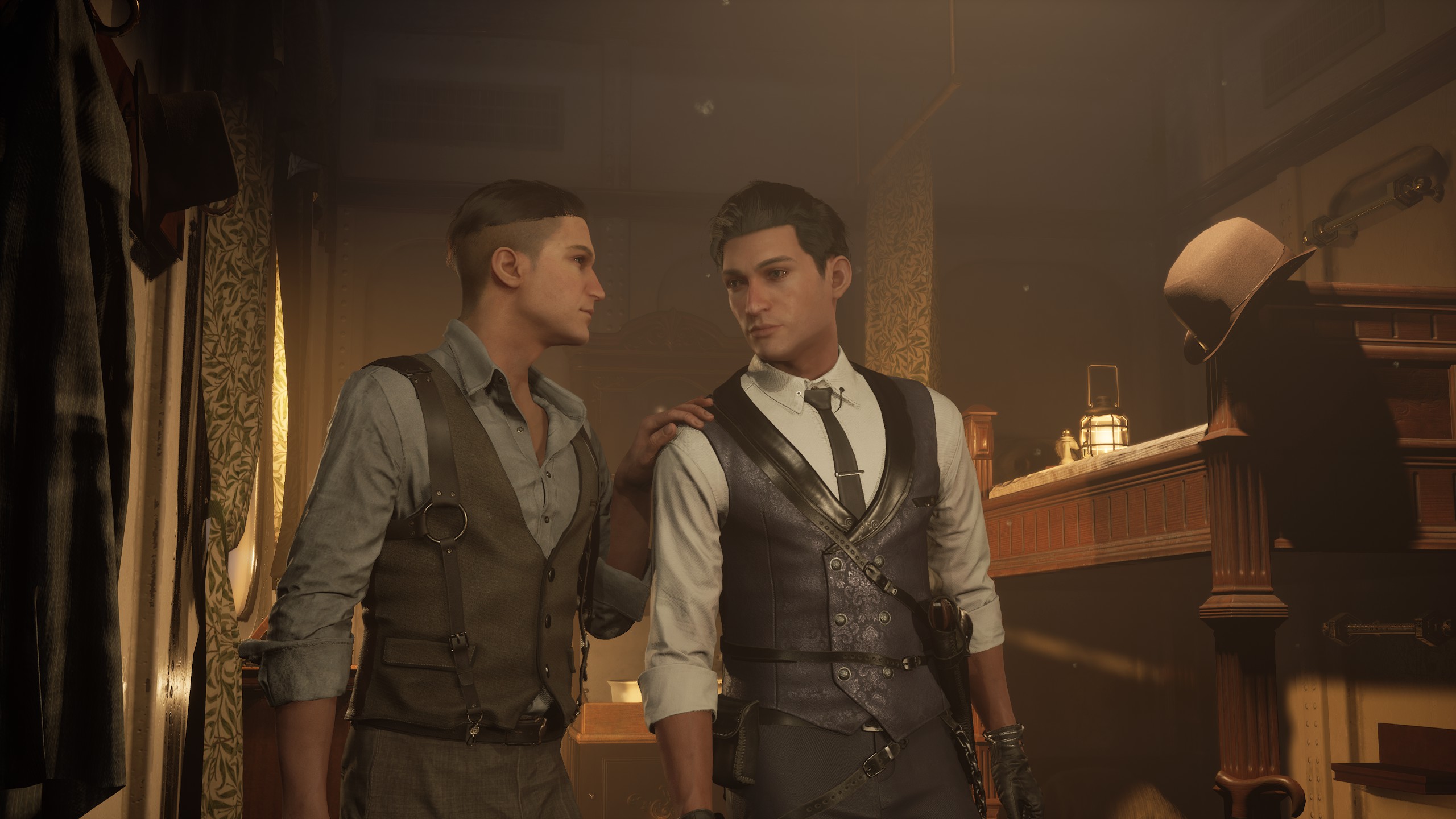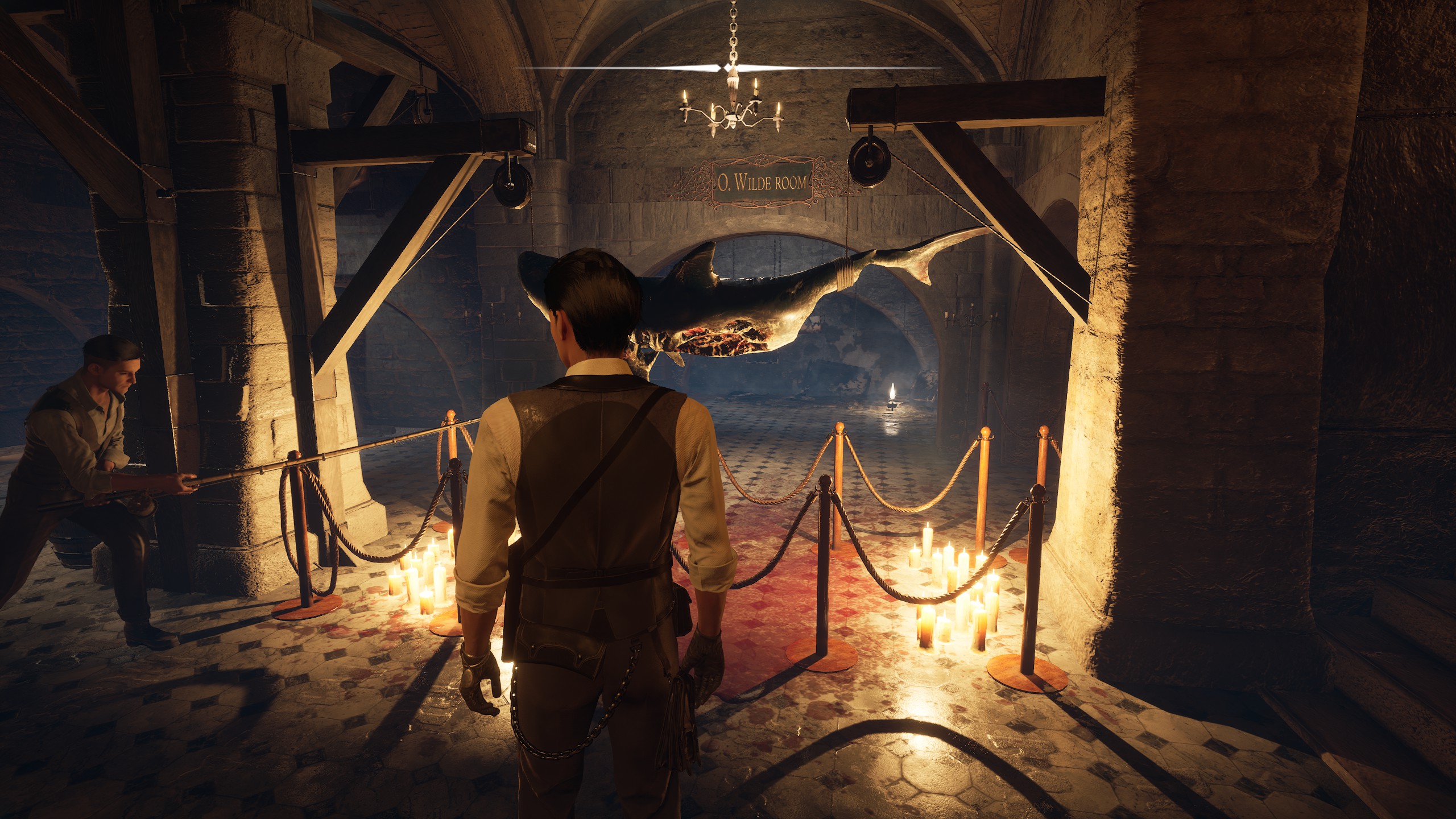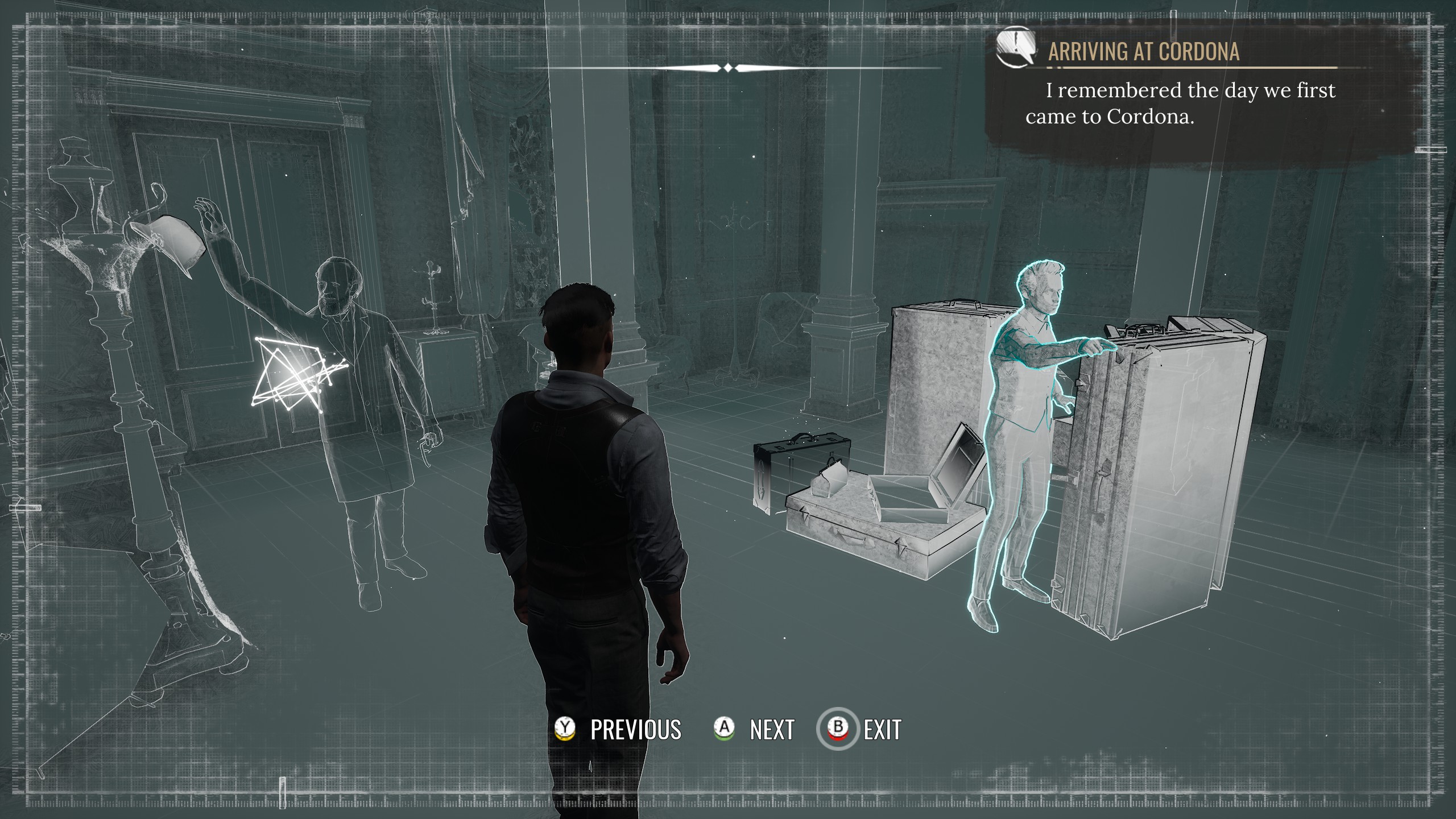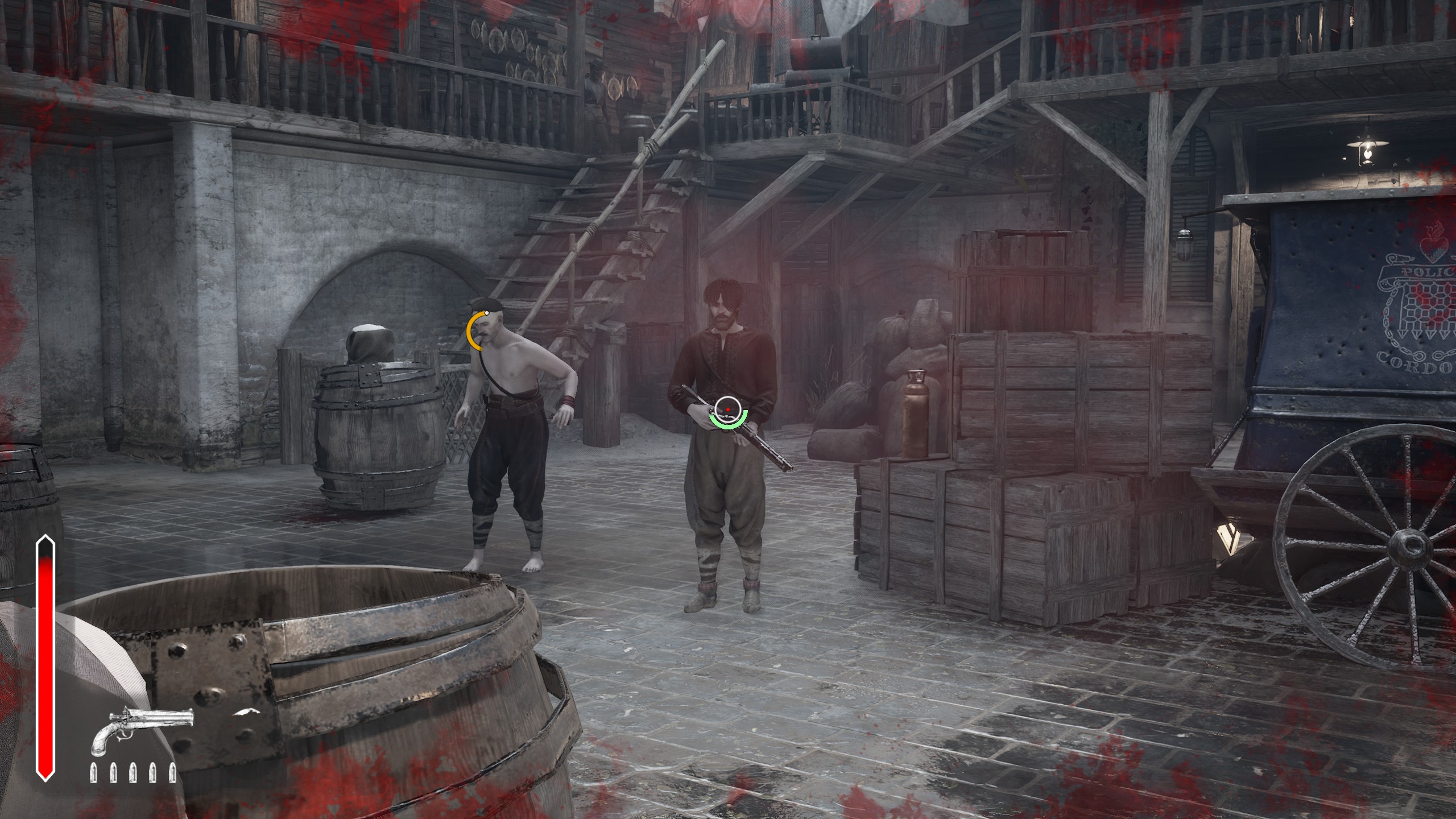Our Verdict
An island full of riveting mysteries, stuck with some truly awful and jarring combat.
PC Gamer's got your back
What is it? An open-world detective mystery with a young Sherlock.
Expect to pay £40/$50
Developer Frogwares
Publisher Frogwares
Release November 16
Reviewed on GTX 1080 Ti, Intel i7-8086K, 16GB RAM
Multiplayer? No
Link Official site
Sherlock Holmes: Chapter One feels like the ultimate expression of developer Frogwares' ambition for its venerable sleuthing series and, simultaneously, its strangest entry. It is nearly everything you could want from a game about the consulting detective, but also quite a few things that you could do without. It veers between greatness and absurdity, but if you've got an itch to solve some Victorian mysteries, there isn't a better salve.
Don't let the title fool you—this is not the first in a series of episodic games, but rather an origin story. In The Devil's Daughter, Frogwares transformed Sherlock Holmes into a brooding Jon Hamm look-alike, and here's it's doubled down, giving us a fresh-faced version of Sherlock who's clearly just walked out of a CW Network drama—probably one of the vampire ones—complete with a pout and a penchant for leather gloves.
Instead of being stuck in gloomy London, Sherlock's taken a trip to the sunny Mediterranean island of Cordona, where he lived as a child, to visit his mother's grave. There's no fog, no army of urchins and no Watson; all of which, it turns out, is actually a good thing. Unshackled from so many of the conventions of a Sherlock Holmes mystery, Chapter One takes bold, surprising and, yes, sometimes quite silly turns, and miraculously does that within an adventure that still feels true to the game series and the broader fiction.
Sherlock's constant companion, Jon, is a sort of proto-Watson, and really exemplifies how Chapter One adapts Arthur Conan Doyle's ancient character. Like Watson, Jon is a sounding board, motivator and confidant for Sherlock, as well as assisting in his cases. But unlike the good doctor, he's a bit of a rogue, with a playful, cheeky streak and a more fraternal relationship with Sherlock. He's also entirely imaginary.
Head games
Jon's status as a figment of Sherlock's imagination is revealed right after the prologue—a brisk but entertaining case involving a séance, a stolen diamond and a murder—but there are hints straight away, like how you never see him walking. You'll open a door and he'll just be there. He doesn't move, he appears. And there's often a hint of mischief. You might find him soaking his feet in a hotel water feature, mucking around on a piano, or painting on the ceiling. I appreciate this level of dedication to keeping the Creepy Watson meme alive.
While Frogwares has pitted Sherlock against eldritch cults and Jack the Ripper, this still feels pretty out-there. But for a series that, at least for the last couple of games, really pushes the concept of mind palaces and constructing mental crime scenes, the idea that Sherlock would also invent a companion to assist him in navigating life in general is maybe not such a huge leap. Jon's also another mystery to solve. He's been with Sherlock since childhood, a period of his life that's mostly a blank. Lost memories can be conjured up, however, filling the gaps in Sherlock's past with sketches superimposed onto the present. And while you're unravelling this story, at the heart of which lies the mystery of his mother's death, you're always a detective. The tools you use to solve crimes are the same ones you use to illuminate the past.
It dawned on me, somewhere between having visions, bantering with my sidekick, and putting crooks behind bars, that Chapter One is a superhero origin story specifically. In Crimes & Punishments, we had the middle-aged, stoic veteran of countless cases, deerstalker on his head, trustworthy Watson by his side, in complete command of his preternatural crime-solving powers. Chapter One's Sherlock is less refined, less in control, and is still trying to complete himself. And his best mate is an imaginary dude who likes booze and dinosaurs. And it works! Somehow. Maybe that shouldn't be too surprising. What is Batman if not an American Sherlock Holmes in fancy dress?
Keep up to date with the most important stories and the best deals, as picked by the PC Gamer team.
The Dark Knight and Sherlock have even more in common now that the latter has joined the ranks of open-world protagonists. Cordona is very far from Arkham's Gotham or Assassin's Creed's gargantuan spaces, however, for which I'm incredibly grateful. Instead, it's evocative of LA Noire and Mafia, where the cities are just elaborate stages. For the most part, the bustling island just lets you get on with the good stuff: solving cases. And oh boy are there a lot of them.
Forget, if you want, all the other stuff—this is Chapter One's greatest hook. A picturesque Mediterranean city that's filled to the brim with thefts, murders and conspiracies; case after case, cold for years or so hot the blood is still warm; and, as a treat, shops full of disguises for you to try on. It's a detective's paradise.
Outside of the main story's five mysteries, there are more than 30 side cases. That's a hefty chunk of delicious crime. You are free to take your time with them, switch back to the main story, and bounce between the ones you've already started. The cases range from simple things like 'which drunk idiot stabbed that other drunk idiot?' to chasing down an elephant who may have killed an important lead. The best cases, of course, are the bamboozlers that send you all over the city to research legal documents, interview suspects, solve riddles and do a spot of chemical analysis but, when you're craving that hit from putting another mystery to bed, it can be nice to just walk into a room, look at a crime scene, and say "That dude did it." And even the quickies can be engaging conundrums—Chapter One takes its cases pretty seriously.
Wrong turn
Like the last couple of games, the cases are made all the more gripping because you absolutely can get it wrong. You might make the wrong conclusions after observing a suspect, make the wrong deductions in your mind palace or, worst of all, accuse the wrong person. Then you just have to keep moving forwards and live with your mistakes. That's the important bit, though. The constant progression. Chapter One is a master of momentum, never letting you get stuck, even when you've got dozens of clues and no idea how to put them together. Everything in your case files comes with a text description that can give you a nudge in the right direction, but even more helpful are the red symbols attached to clues that let you know there's still more to glean and, crucially, how you go about doing that, without giving away too many specifics. You're still the one making all the important decisions and deductions, but with none of the faffing around or aimless wandering.
Even when that dreaded word "collectibles" rears its head, it's an easier pill to swallow because it just means more puzzles to solve. Back when Sherlock was a kid, his brother Mycroft pinched his coin collection and hid them all over the island. A decade later, you can try to find them all. Mycroft is a prize prick, so you'll have to jump through some hoops to get them, flexing those detective muscles as you piece together his clues. Thank goodness for horrible brothers, because it's one of the only collectible hunts I've enjoyed. Chapter One has a few of these diversions and, while they never reach the heights of the actual cases, they never feel like fluff. Indeed, you'll learn a lot more about Sherlock and Jon by completing them, making them an important piece of the narrative puzzle.
Nearly everything in the open world fits, but there's a glaring exception: bandit lairs. They are a surreal addition, if only because it makes absolutely no sense for them to be in this game of mystery and deduction. The cops are apparently overworked, so they let a 20-year-old nerd with a gun take out criminal gangs with no backup. You can go Victorian Rambo on their asses, but you're gently encouraged to cuff rather than kill. Go down this route and you'll still need to use your gun, however, by shooting environmental hazards or destroying the armour plates some of bandits have strapped onto themselves. After that you can stun them in a QTE and leave them for the lazy cops.
Watching Sherlock dish out all these beatdowns, it feels like one step towards Batman too far. Every other oddity has its place, like it's been thoughtfully included, but these pointless brawls are utterly incongruous to the rest of the game, like someone accidentally spilled some Far Cry on it in the middle of development. I'm not even entirely opposed to a Sherlock game having a few fights, but not these repetitive, wave-based arena brawls with vacuous goons. And sadly that's the only kind of fight Chapter One throws at you. The good news is that these lairs are so detached from the rest of the game that you can and should skip them. The bad news is that Frogwares is so inexplicably confident in the quality of these out-of-place bouts that it also chucks them into cases, making them unavoidable, though not common.
Sherlock still tends to find a way to handle most problems with words, running rings around everyone with his uncanny observations and revelations. He's even occasionally funny, playing off Jon, who brings it out in him, or resorting to some polite Victorian sarcasm when he's had enough of someone's bullshit. There's a playfulness to Chapter One that balances out the grim nature of Sherlock's work, both through the the characters and the gags that Frogwares has snuck into easy-to-overlook things, like innocuous items and disguise descriptions. Serious or silly, the dialogue often contributes just as much to the cases as the compelling mysteries themselves, and the quality of the writing is some of the studio's best.
Despite this, it does still stumble. There's the depiction of a trans man as, in Sherlock's words, "a woman who disguises herself as a man to achieve higher social position". He is also consistently misgendered by Sherlock, even in conversations where he's calling him by his chosen name. Neither Sherlock or Cordona are real, and the setting should serve the game, not the other way around, so the Victorians aren't to blame for Frogwares' misstep here. Or when it decided that searching from an African refugee should be a simple matter of asking the first random Black passer-by you can find. For a game with so much smarts, it can be very dumb.
Like the young detective himself, Chapter One is imperfect and sometimes awkward, but I still found myself dangling on its hook, hungry for more crimes. There is a very clear point of no return, and with a deadline looming I considered moving past it a few times, but I kept being drawn back by the cases I'd yet to close. And then I'd find completely new ones. The people of Cordona just cannot help but murder each other, for which I'm grateful. I begrudgingly polished off the story eventually, but I've still got a few outstanding conundrums to solve, and a save waiting for me. It's impressive that, as dense as it is, and as long as it is, it still manages to stay focused, bandit lairs aside, on the important stuff. It's a miracle—an open world with almost no bullshit. You're here to sleuth, and that's exactly what you'll get to do, nearly uninterrupted, for 40 hours.
An island full of riveting mysteries, stuck with some truly awful and jarring combat.

Fraser is the UK online editor and has actually met The Internet in person. With over a decade of experience, he's been around the block a few times, serving as a freelancer, news editor and prolific reviewer. Strategy games have been a 30-year-long obsession, from tiny RTSs to sprawling political sims, and he never turns down the chance to rave about Total War or Crusader Kings. He's also been known to set up shop in the latest MMO and likes to wind down with an endlessly deep, systemic RPG. These days, when he's not editing, he can usually be found writing features that are 1,000 words too long or talking about his dog.
